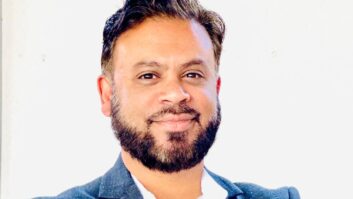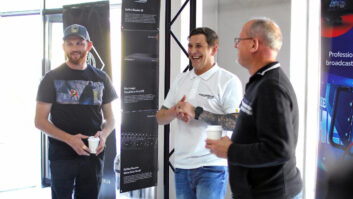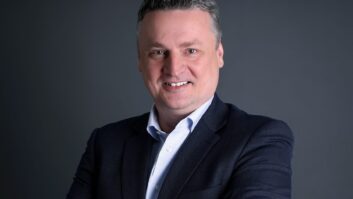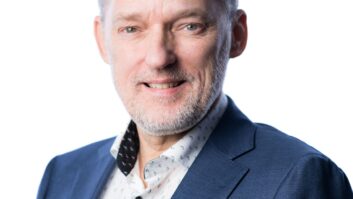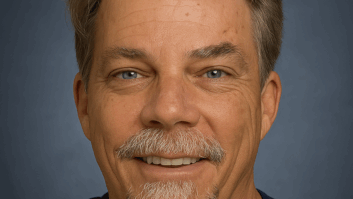Aland of contrasts, possibilities and challenges – that was the overriding impression conveyed by IE’s last overview of Africa (June 2007). It was clear that, by some distance, South Africa was home to the most well-developed installation market, although northern countries of Morocco, Tunisia and Algeria were proving to be increasingly dynamic.
Thirteen months on, these developments have only become more pronounced. Sporadic terrorist attacks remain an obvious source of concern in Algeria, but the country’s status as a major oil and gas supplier – not to mention its ‘gateway’ location between Africa and Europe – is helping to sustain long-term economic growth. In Tunisia, meanwhile, a diverse economy and a concerted attempt to tackle poverty are fostering a progressive feel, although the country’s record on human rights still leaves much to be desired. Finally, reforms – economic and otherwise – are continuing in Morocco as the company continues its (as-yet unsuccessful) bid for membership of the European Union.
Enter Kenya
All of this bodes well for installers and suppliers who are active in these markets. Interestingly, though, several other countries are now entering the frame, not least Kenya. Thanks in particular to the nation’s burgeoning appeal as a tourist destination, Kenya has enjoyed a partial economic revival in the past few years. While unemployment and deprivation remain widespread – indeed it has been claimed that most Kenyans live below the poverty level of $1 a day – it is accurate to say that organisations in both public and private spheres are more willing to commit funds to develop PSK Ltd – a Kenya-based installer new facilities and renew existing ones.
with UK affiliation and a specialism in high-end electronic security systems, IP CCTV and access control – is one company that can attest to this. According to technical director Martin Parry, the installation business in Kenya and PSK’s other focus in Africa, Ghana, is “very healthy. The sectors we see the most growth in are government and the private sector. [In particular] the market for CCTV is enormous. The natural leap is straight to IP since there are few legacy systems in place.”
A clutch of recent projects, including a pilot CCTV installation in the central business district of Nairobi (see case study, page 27), confirms PSK’s growing presence. As Parry readily admits, however, it has taken a lot of hard graft to get this far. “Working in a foreign country is always challenging and there is a steep learning curve with regards to how business in general is conducted. This includes activities such as setting up an office, importing goods, training local people and technology transfers,” he explains.
Brähler ICS is another company with a strong European presence that is exploring the Kenyan market – and indeed those of several other countries, among them Tanzania (see case study, page 28), Nigeria and South Africa. The supplier of simultaneous interpretation, microphone discussion and audience response systems has found the rental market to be perhaps the biggest attraction thus far, but fixed install – specifically government ministries, parliamentary buildings and major corporate organisations such as insurance companies and banks – is also proving to be rewarding.
“I see a [pattern of] growth for the next five or more years,” says an upbeat Gerhard M Bauer, marketing and project manager at Brähler ICS. “There is a big movement in Africa for more development, with support coming from all over the world. EU authorities are investing, as are large individual countries such as China.”
At the time of his interview with IE, Bauer is keenly anticipating a new African member for the company’s worldwide sales and support network. In general he appears confident that the investment required to establish and maintain a presence in markets such as Kenya will be rewarded. Like Parry, however, Bauer admits that time and patience are essential. In particular, finding the right collaborators has been integral to the company’s success to this point.
“It’s important to find a partner who has an understanding of the European business style,” he says. “A good starting point is a specific project where both parties can learn from each other. It is also essential that the partner has a good personal development strategy. It is not beneficial for the cooperation if company members change a lot in terms of operation of the equipment, training for a complex project and maintenance… If the partner company in Africa is stable and has experience with conference projects, for example, there is potential for a very advantageous partnership.”
Of course, for some regional and international players, Africa can frequently mean South Africa only. While the country still has serious issues to address – not least the second-highest rate of HIV infection in the world, controversy over the redistribution of land, high unemployment and, at the time of writing, some serious outbreaks of xenophobic violence – South Africa’s economy remains strong thanks to vibrant financial, manufacturing and export sectors.
Pivotal position
In addition, there continues to be a real feeling of excitement about the country, both nationally and internationally. This is perhaps exemplified by continuing preparations for South Africa’s hosting of the 2010 FIFA World Cup. Although, on a more subtle level, there is a sense that the country has the potential to play a pivotal role in fostering democracy in a number of other African nations.
DWR Distribution is just one of the companies benefiting from these favourable conditions. Founded two years ago by former Electrosonic employee Duncan Riley, the operation has a diverse portfolio that features a number of internationally renowned AV brands, including Robe, MA Lighting and Avolites. Theatre is proving to be particularly rewarding, with recent commitments in this area including supply and installation work at the newly constructed Lyric Theatre, located at the Gold Reef City Casino in Johannesburg. The company also won a major lighting tender as part of a joint venture with Sonic Factory and AV Tadco (more of which anon) to help revamp South African Breweries’ World of Beer interactive museum. Picking up on the collaborative theme raised by Bauer, Riley suggests that strong partnerships with project consultants are vital for any meaningful success in fixed install. “The installation market is all about a relationship with the consultants who are responsible for the projects, and getting your kit specified from the beginning,” he says. “Working [in close co-operation] with interior designers is also very important. You only have one chance to do it properly!”
In the longer term, DWR Distribution is hoping to establish a presence in some other African countries, but for the moment Riley is erring on the side of caution. As he notes: “This is a risky business.” One South Africa-based company that has begun to explore other African markets – with some considerable success – is Tadco, an installer and distributor that has responsibility for brands including Christie, Nexo and Camco. “We have been looking to countries including Uganda, Rwanda, Mozambique and Ghana in the past few years. In particular, we have done a lot of work in Uganda,” says Richard Barnes, one of Tadco’s directors.
A lengthy process
Not surprisingly given the relatively formative nature of the installation business in many of these countries, setting up deals can require considerable patience. “Getting projects up and running can take up to three years,” admits Barnes, who is nonetheless confident that it is “worth doing business” outside of South Africa.
Back on home territory, Tadco – which recently added console manufacturer DiGiCo to its distribution portfolio – reports consistent demand for houses of worship, restaurant, bar, conference facility and visitor centre installations. “All of those areas are moving forward,” confirms Barnes’ fellow director, Simon Oates, citing a recent visitor display system fit-out on behalf of the South African Broadcasting Corporation.
Despite this – and notwithstanding the current boost that World Cup preparations are giving to all kinds of areas – Barnes does voice concerns about South Africa’s economic prospects in the mid to long term. “Business is good, [but] I don’t think there’s any doubt that a recession is on the way,” he says. “However, these conditions are affecting many different countries, and they are not insur- mountable. You have to be cognisant of the situation that people are facing.” Terry Acres, chairman of another major SA distributor, Prosound, also predicts a temporary waning of demand in the near future. “There will be a downturn in installation during 2010,” he warns, “but the government has a major infrastructure programme until 2015 and this should impact [positively] on available projects.”
Formed in 1973, Prosound has established a formidable reputation as a design, installation and distribution company, with Electro-Voice, Meyer Sound, Midas, ETC and Zero 88 among the leading brands for which it provides representation.
Large-venue projects have been particularly important for the company since it worked in conjunction with Smith Fause Electroacousticians to design and install the Ellis Park Rugby Stadium in the early 1980s. In 2008, this rich seam of work is continuing with engagements at various host venues for the 2010 FIFA World Cup. Not only is the company providing audio systems for all seven participating stadiums that have been tendered to this point, it is also supplying rental companies that are gearing up for events set to take place in and around the football extravaganza. Prosound is also designing and installing sound systems at the new Durban International Airport, which is set for completion before the event begins. Asked to nominate more longterm difficulties, Acres highlights the kind of skills shortfall that is a recurring theme of IE’s regional foci.
“Challenges in a developing market will always revolve around access to skills, but that is an international problem in our industry. Prosound has to do extensive design work due to limited EA abilities in the consulting firms – usually electrical,” he explains. While an insufficient skills base is clearly a continuing affliction for companies active in South Africa (“it’s probably one of the largest drawbacks to be dealt with,” says Oates), there is no doubting the overall maturity of the country’s professional installation business, or indeed its robust health. Moreover, there is evidence that the expertise of many key players in this market is beginning to inspire growth in some other African countries, not least Kenya and Uganda. It’s still fairly early days, of course, but the overriding impression is that future discussions on the African installation business will be increasingly far-reaching – not least in simple geographical terms.
